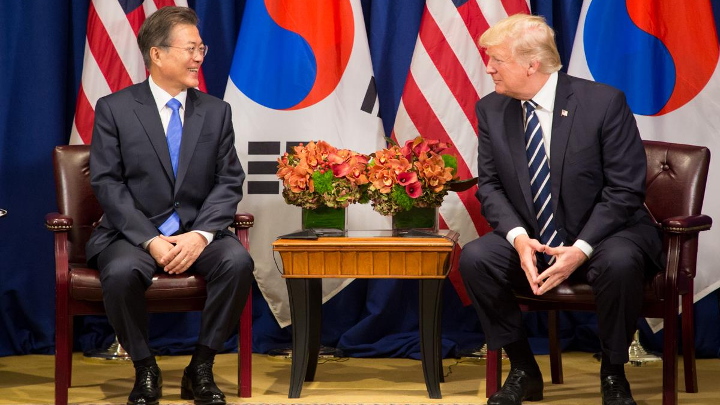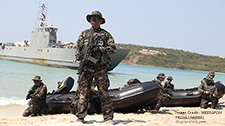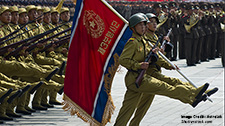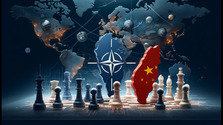The Washington-Seoul Alliance in the Time of North Korea’s Denuclearization

Sangsoo Lee and Alec Forss
Following a dangerous escalation of tensions last year, few could have envisaged the rapid turnaround in events witnessed so far amidst a flurry of high-level summit diplomacy. Although the complete denuclearization of North Korea remains a hypothetical scenario for now, its prospect would herald huge implications not only for inter-Korean relations, but also regional security dynamics in Northeast Asia. A key question, therefore, is how a process of denuclearization would impact on the U.S.-ROK alliance – an alliance which in October will commemorate 65 years since the mutual defense treaty was signed between the two sides in 1953.
North Korea’s perceived military threat constitutes a key rationale for American military alliances with South Korea and Japan. The U.S.-ROK alliance is arguably at its strongest when North Korea is deemed to be the greatest threat. Accordingly last year, responding to a succession of missile and nuclear tests, President Moon Jae-in not only sanctioned the largest joint military exercises yet seen between the two allies, but also fast-tracked the installation of the contentious U.S. THAAD anti-missile system, at the expense of South Korea’s relations with China.
Read the full article at the Italian Institute for International Political Studies.
Related Publications
-
Unraveling of a martial law attempt: South Korea’s democratic moment
South Korea, once known as the “Land of the Morning Calm” and the Hermit Kingdom, has a complex modern history marked by ideological tensions and political challenges. Since the establishment […]
-
Will Kamala Harris Reignite Dialogue with North Korea if Elected in 2024?
Quid Pro Quo: Will Controlled Dialogue Make a Comeback? In late August, in her nomination acceptance speech, the U.S. Democratic presidential candidate for 2024, Kamala Harris, unequivocally talked about not cozying up […]
-
Uncharted Territory: Exploring the Legal Ramifications of NATO’s Hypothetical Involvement in Taiwan
You might just have been living under a rock to not have noticed that recently there has been a change in tone at the North Atlantic Treaty Organisation (NATO) on […]
-
The Political Split at the Heart of Taiwan’s Struggle against Foreign Disinformation
Taiwan’s struggle against foreign disinformation and concerns about China’s impact on its 2024 election has received much international attention recently. This issue brief examines the domestic and international politics behind […]
-
ISDP Annual Report 2023
ISDP’s Annual Report for the year 2023. We look back on 2023, a year in which tensions and conflicts captured the strategic space in ISDP’s focus areas, making headlines around […]




